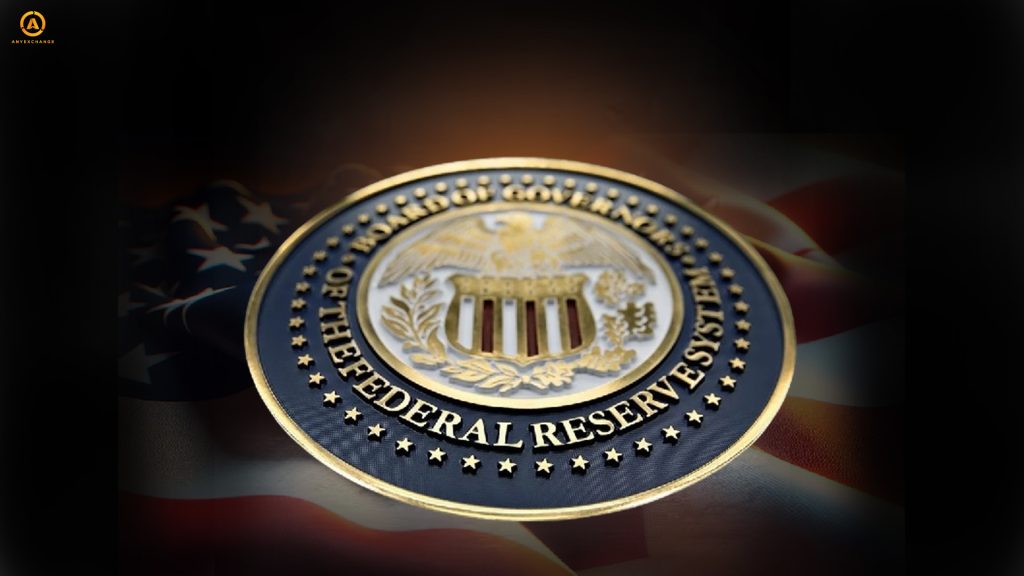
At the beginning of August this year, the market unexpectedly collapsed. Bitcoin fell almost 20%, Asian markets collapsed, Ethereum lost a fifth of its value.
And we wondered. What was the cause? The escalation in the Middle East? Ukraine’s Kursk offensive? Cyclical market movements? Durov’s arrest in France? Or maybe it’s time for critics to rejoice that the cryptocurrency market is over?
Let’s understand how much the cryptocurrency market depends on macroeconomic factors and whether any of them can have a direct detrimental effect on it. Whether or not it is resilient to localized threats, and what factors experts look at first when predicting the scale of disasters that may befall cryptocurrency investors.
The extent to which cryptocurrencies are dependent on macroeconomic factors
Digital asset prices are less sensitive to macroeconomic factors than traditional financial asset prices. Nevertheless, the indirect dependence of cryptocurrencies on the macroeconomy can still be traced.
According to S&P Global analysts, the direct influence of macroeconomic factors on the volatility of cryptocurrencies is difficult to confirm for the following reasons:
- Changes in digital asset prices occur at times when there are no external reasons for them, and they are only relevant to the cryptocurrency market;
- Wider use of cryptoassets in emerging markets, where the impact of inflation can be seen with the corresponding devaluation of local fiat currencies;
- The relatively short history of the industry, which does not provide comprehensive information for analysis.
Traditional financial assets are heavily influenced by interest rates and inflation, while cryptoassets are not. Rather, the volatility of the cryptocurrency market is determined by the following factors:
On the other hand, the report notes that the up and down cycles of cryptocurrencies correlate with periods of monetary easing or tightening. Data from the International Monetary Fund confirms that the interdependence of the virtual asset market with traditional financial markets is rapidly evolving.
Bitcoin — a safe harbor asset amid recession risks?

According to Bitfinex, BTC could become a safe haven asset during the recession.
Central banks around the world have approved 35 rate cuts in the last three months. This trend looks like a precursor to a global crisis, similar to the one that rocked the world in 2009 (76 rate cuts were seen then). Falling government bond yields in the stock market are also a classic indicator of recession.
According to Bitfinex analysts, it is “digital gold” that may become the asset in which investors will redirect their funds. Altcoins will have a weaker position in this situation, as they are still more risky assets than the world’s first cryptocurrency.
By the way, bitcoin has repeatedly demonstrated its immunity to the influence of most macroeconomic factors during periods of economic instability or geopolitical events.
Let’s remember that BTC has a limited supply of 21 million, the last coin is expected to be issued in 2140. This is specified in the source code and is governed by a halving that occurs on the network every 4 years. This is why bitcoin is called “digital gold”, although there is no such precise data on gold (precious metal). In addition, the decentralized coin is not subject to strict government regulation. This further strengthens the position of BTC.
Also, according to ex-CEO of BitMEX Arthur Hayes, smart investing comes down to three simple positions:
- Trust the systеm and those who run it — invest in government bonds.
- If you trust the systеm but can’t trust those who run it — invest in stocks.
- If you don’t trust the systеm or those who run it — invest in gold or assets that don’t require government involvement to make money. That is bitcoin and cryptocurrencies.
How the Federal Reserve’s Interest Rate Cut Will Affect Cryptocurrencies

Unlike other countries, the United States is not in a hurry to lower its key interest rate, and the Federal Reserve systеm has kept it at 5.25-5.5% for more than a year, while maintaining a positive GDP growth forecast. Financial market participants are eagerly awaiting this event this month. To what extent will the “Fed reversal” have an impact on the cryptocurrency market?
The impact of COVID-19 on the crypto sector was that it made it somewhat dependent on the US stock market. The correlation between crypto market capitalization and the S&P 500 index was due to institutional investors and traders preferring the familiar tools of portfolio investing, hedging through options and futures markets, and risk management.
Setting the federal funds rate is one of the Fed’s most powerful monetary policy tools. When it rises, credit becomes more expensive, making it harder to do business and hurting the economy and demand for oil; when it falls, money becomes more available.
Against the backdrop of the pandemic shock, the Fed raised it until mid-2023, and now the world is waiting for a turnaround in U.S. monetary policy with the easing of its conditions. The Fed will inject additional money into the banking sector, access to capital will be simplified, which will increase the appetite of investors. At the same time, exchange rates, the value of all types of assets and oil prices may rise, which will provide economic growth for both the traditional financial market and the cryptocurrency sector.
In general, the Fed’s reversal is a marker of a slowdown in the US economy, a preventive tool to avoid recession or stagnation. The trade war with China, deteriorating public company reports are forcing the Fed to take this step. In any case, the move to lower rates implies long-term positive expectations.
The Federal Reserve has tapered three times in the last 25 years. The cryptocurrency market does not have such a long history, but it can still be assumed that it is subject to the cycles that traditional financial assets live by, so it is likely that the sector can also expect some positive changes.
Another factor that markets are eagerly awaiting is the outcome of the U.S. presidential election in November. So far, the public is heatedly debating the positions of the candidates based on their campaign rhetoric and meetings with voters. Donald Trump is actively promoting the theme that he will give the green light to cryptocurrencies, and many analysts expect bitcoin, and behind it the entire digital asset sector, to grow if the odious and unpredictable candidate wins. At the same time, they are not sure that all his words can be trusted.
On the other hand, there is every reason to believe that Trump’s rival Kamala Harris will take systematic and comprehensive measures to develop the entire technology sector, including cryptocurrencies.
In any case, both the change in the Federal Reserve’s key interest rate and the outcome of the presidential election will not affect the situation in one day: it will take months for the trading markets to accept the new conditions and start playing by the changed rules.
Geopolitics and the summer market downturn

Analysts believe that the influence of geopolitical factors on global financial markets began against the backdrop of the events in Georgia in 2008, then continued and intensified by the confrontation between Western countries and Eurasia (russia, China and Iran). russia’s military invasion of Ukraine and the Israeli conflict require most of the world’s countries to be prepared to support military action in their area of interest. This changes the approach to the structure of spending on military budgets. Military levies are increasing and the banking systеm is directing the lion’s share of credit funds to the state, which needs to achieve its political goals. Bitcoin and cryptocurrencies are not affected because digital assets are independent of the state. So these disappointing factors only strengthen the position of the crypto sector.
At the same time, investor caution is growing amid the global sell-off in equities. And we have seen the largest outflow of funds from exchanges trading bitcoin in the last three months. It happened on August 2.
During the collapse of stock indices on Asia-Pacific exchanges, bitcoin fell to levels not seen since February. At that time, stock indices of major exchanges fell by an average of 10%, some of which suspended trading. Dow Jones Industrial Average (-1.5%) and Nasdaq (-2.4%) futures fell. The value of BTC dropped 18%.
According to Bloomberg, the decline was due to a global sell-off in equities triggered by escalating conflict in the Middle East and a deteriorating U.S. jobs report.
This brought clear risks of ETF fund liquidation, which would have been catastrophic. New investors in BTC attracted by spot bitcoin ETFs would have lost money. And they were actively attracted to the safest way to invest in the most reliable decentralized asset.
According to BeinCrypto, the fall of the crypto sector was due to the following reasons:
Conclusion
As we can see, macroeconomic factors have some impact on the cryptocurrency market, especially when the digital asset sector enters into interaction with traditional financial systems. In any case, the main locomotive of the industry — bitcoin, which occupies a share of more than 50% of the total capitalization, shows steady long-term growth, and so far the factors that can stop the value of the first virtual coin have not manifested themselves. And it is unlikely to happen, given its decentralized nature, reliability and Satoshi Nakamoto’s ingenious idea of strict issuance limits.
Thank you for your attention. Invest profitably and without risk!
AnyExchange is a cryptocurrency exchanger that allows you to exchange digital assets for electronic or cash money. Our company has been present on the financial market for more than five years and has an excellent reputation. There are over 100 currency pairs available on the site, which you can convert at the most favorable rate. You can also make fast money transfers worldwide on our platform.





